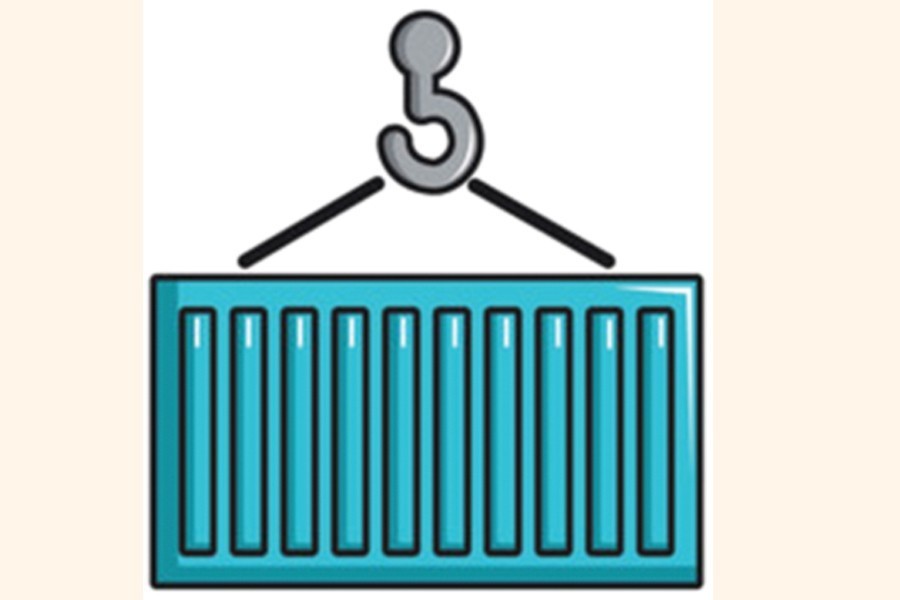
Published :
Updated :

Rationalising tariffs, ensuring quality products in its basket and developing better-dealmaking skills are among priorities some eminent experts set for Bangladesh to sustain in post-graduation competitive trade.
Tariff-modernisation process will not only give enough impetus to the country's export performances in a sustainable manner but also encourage overseas companies to come into the economy that already shows its strength in this pandemic time, according to them.
For boosting Bangladesh's trade competitiveness, they laid emphasis on three specific areas of diversification - products, markets and human resources.
Alongside, they suggest concentrating on enhancing negating skills of the policymakers for yielding better outcomes in trade-agreement talks.
The suggestions came Tuesday at a webinar on boosting Bangladesh's trade competitiveness, through navigating challenges after graduation from the Least Developed Countries (LDCs) status. It was jointly hosted by Policy Research Institute (PRI) and the World Bank (WB).
Chairing the online discussion, Chairman of the local think-tank PRI Dr Zaidi Sattar said the whole paradigm of export-led growth did not emerge from the WB, it came out from the East Asian nations like South Korea, Taiwan and Singapore.
Bangladesh belatedly adopted the policy option and yielded good results becoming an export-oriented economy, he noted.
"Tariff rationalisation is the biggest challenge the country is now facing. It is a significant barrier to boosting exports and its diversification. Modernization of the tariff structure is one of several measures needed to diversify and strengthen our export- competitiveness," he says.
Mr. Sattar notes that there are costs for protection and consumers are forced to pay a higher cost of the protection for a longer period of time.
"This is an important policy idea Bangladesh should take on board. Now, it's time to introduce National Tariff Policy. I think, the government is now exploring the idea. Hopefully, there will be something in coming days," the PRI chairman says about the dos.
President of Dhaka Chamber of Commerce and Industry (DCCI) Rizwan Rahman highlighted the importance of rationalising tax structure for the sake of competitiveness.
He points out that the corporate tax structure in Bangladesh is 30 per cent while it is around 20 per cent in the country's regional peers like Vietnam, Cambodia, Laos, Sri Lanka and India.
The government has reduced the rate by 2.5 per cent progressively for the last two years. So, it has gone down by 5.0 per cent.
"Is it enough for us to remain competitive?" He posed the question. "The first cost is the taxation. We need to supplement all the barriers with a comparative tax regime," he says.
Naming some key trade blocs like BIMSTEC, BRI, ASEAN, RCEP, he said the government needs to give top priority to these grouping because a significant volume of the country's export concentrates on these regions.
Talking about trade agreements, Mr. Rahman traces a lack of negotiation skills and says the policymakers should be backed by economists, think-tanks, research analysts, academics and even mathematicians in terms of tariff liberalisation and trade agreements.
Former senior secretary for commerce Dr Md Jafar Uddin said the country ought to work on three areas of diversifications - products, markets and human resources--to cope with the post-LDC-graduation challenges.
"We don't forget that our competitors are stronger. We should not undermine them. That's why we need to develop our skills."
Lawmaker Yussuf Abdullah Harun said there are many countries attaining graduation from the LDCs club but they are still languishing there, with exception of countries like South Korea.
"We really need to see what went wrong and how we need to proceed ourselves," said Mr Harun, a member of the parliamentary standing committee on the ministry of commerce and also a former apex business-body leader.
Speaking as the chief guest, commerce minister Tipu Munshi said both economy and export rebound from Covid-19 shocks quickly and strongly riding on prudent policy supports and timely incentive packages offered by the government.
There are many challenges in the areas like productivity, export-and market diversification, competitiveness, participation in global value chain, human capital and modernisation of tariff structure, but the government is working in these areas, he told the meet.
PRI vice-chairman Dr Sadiq Ahmed and its research director Dr Abdur Razzak, senior WB economists (Macroeconomics, Trade and Investment) Dr Nora Dihel and Dr Csilla Lakatos, among others, also spoke at the virtual event.
In a keynote paper, WB senior economist (macroeconomics, trade and investment) Dr Nora Dihel presented a strategic roadmap for improving Bangladesh's revenue performances. These are broadening tax base, reducing exemptions, collecting other forms of taxes due to increase in income, strengthening tax administration and improving revenue forecasting.
Regarding modernising of tariffs to increase trade-competitiveness, she said Bangladesh's lack of export diversification partially can be attributed to a protective trade regime.
"The impending erosion of trade preferences due to LDC-graduation further challenges Bangladesh's competitiveness."
WB senior economist Dr Csilla Lakatos said it is important to prioritise services agenda to help companies adapt to the rapidly evolving technological disruptions.
She also suggests regional integration to speed up market diversification and economic growth in a post-pandemic period.
jubairfe1980@gmail.com


 For all latest news, follow The Financial Express Google News channel.
For all latest news, follow The Financial Express Google News channel.